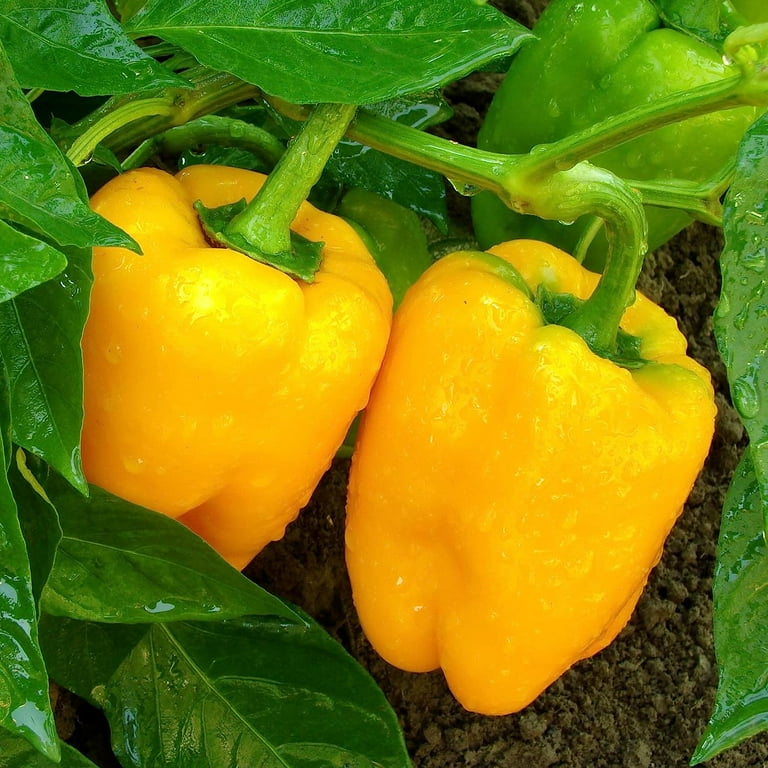Top-Rated Fertilizers for Peppers: Improve Your Harvest Quality
Organic Vs. Synthetic Fertilizers: Which Is Best for Nurturing Healthy Pepper Plants?
In the world of nurturing healthy and balanced pepper plants, the choice in between artificial and organic fertilizers stands as an essential choice with far-ranging implications. While both choices goal to give necessary nutrients to support plant growth, the subtleties of their effect on the dirt, plant wellness, and the setting trigger a discussion that echoes throughout the horticulture area. Recognizing the distinctive benefits and prospective challenges of each fertilizer type is essential for pepper growers seeking to maximize their yields while maintaining a lasting and eco-conscious technique.
Advantages of Organic Plant Foods
Organic plant foods offer a lasting and environmentally-friendly technique to beneficial pepper plants, providing crucial nutrients without using artificial chemicals. These natural plant foods are derived from organic resources such as garden compost, manure, bone dish, and seaweed, advertising soil wellness and biodiversity. Unlike artificial fertilizers, natural alternatives launch nutrients slowly, making certain a well balanced and constant supply for pepper plants to thrive.
One significant advantage of natural fertilizers is their capacity to improve dirt framework and water retention. By enhancing soil health, natural plant foods promote helpful microbial task, which assists in nutrient uptake by pepper plants. Additionally, organic fertilizers reduce the risk of chemical run-off, safeguarding water sources from air pollution and securing the atmosphere.
Additionally, natural fertilizers add to long-lasting soil fertility by advertising the growth of advantageous soil microorganisms. These organisms help break down raw material, releasing nutrients in a type that is easily accessible to pepper plants. best fertilizers for peppers. By promoting a healthy dirt environment, organic plant foods sustain lasting pepper farming techniques that benefit both plants and the atmosphere
Downsides of Artificial Fertilizers
Synthetic plant foods, in contrast to their natural counterparts, present various drawbacks when utilized to nurture pepper plants, influencing both plant wellness and environmental sustainability. One significant disadvantage of artificial fertilizers is their tendency to leach nutrients from the dirt quickly. This fast leaching can lead to nutrient discrepancies in the soil, causing plants to deal with poisonings or deficiencies. Additionally, synthetic fertilizers can hurt helpful dirt organisms, such as earthworms and useful microorganisms, disrupting the soil environment's balance.
Additionally, the overuse of artificial plant foods can contribute to water pollution. Excess fertilizers not soaked up by plants can clean away into water bodies, bring about eutrophication, where algae blooms deplete oxygen degrees in the water, harming marine life. Additionally, artificial plant foods are normally stemmed from non-renewable sources, such as fossil gas, adding to carbon exhausts and environmental destruction throughout their manufacturing.
Nutrient Absorption Contrast
When contrasting natural and artificial plant foods in terms of nutrient absorption, organic fertilizers have the advantage of offering an extra well balanced and slow-release source of nutrients. Organic fertilizers have a variety of macro and trace elements that are not only valuable for the plants yet additionally advertise healthy dirt microbial task, which helps in nutrient uptake.
Furthermore, natural fertilizers boost dirt framework and water retention ability, permitting pepper plants to accessibility nutrients more effectively. This improved soil high quality helps with root development, making it possible for much better nutrient absorption. Synthetic plant foods, although at first increasing plant development due to their high nutrient focus, might impede long-lasting nutrient absorption by derogatory soil wellness in time.
Environmental Impact Considerations

On the other hand, synthetic fertilizers, although typically even more promptly readily available and focused to plants, can have detrimental results on the setting otherwise used correctly (best fertilizers for peppers). Their production needs high energy inputs, leading to greenhouse gas exhausts and adding to environment modification. In addition, the overflow my link of excess synthetic fertilizers can infect water sources, bring about eutrophication and hurting marine environments.
Ideal Fertilizer Practices for Peppers
To attain this, it is vital to follow ideal plant food methods tailored to the details requirements of pepper plants. One important practice is to perform a dirt test before using any kind of plant foods.
Another essential practice is to fertilize pepper plants at the correct time. Typically, peppers gain from obtaining fertilizer at planting and after that again when they begin to blossom. Over-fertilizing can cause nutrition imbalances and harm the plants, so it is vital to adhere to suggested application rates.
Additionally, selecting a well balanced fertilizer with an NPK proportion that fits pepper plants' needs is basic. Eventually, combining synthetic and organic plant foods carefully can aid support healthy pepper plants while minimizing environmental effect.
Verdict

Organic plant foods offer a sustainable from this source and environmentally-friendly technique to nourishing pepper plants, supplying essential nutrients without the use of synthetic chemicals. Unlike artificial plant foods, organic choices release nutrients gradually, ensuring a stable and balanced supply for pepper plants to prosper.
Artificial fertilizers, in contrast to their natural equivalents, pose various negative aspects Click Here when made use of to nourish pepper plants, influencing both plant health and environmental sustainability. When comparing organic and artificial fertilizers in terms of nutrient absorption, organic fertilizers have the advantage of giving an extra well balanced and slow-release source of nutrients.Additionally, natural fertilizers enhance dirt structure and water retention ability, enabling pepper plants to accessibility nutrients extra effectively.